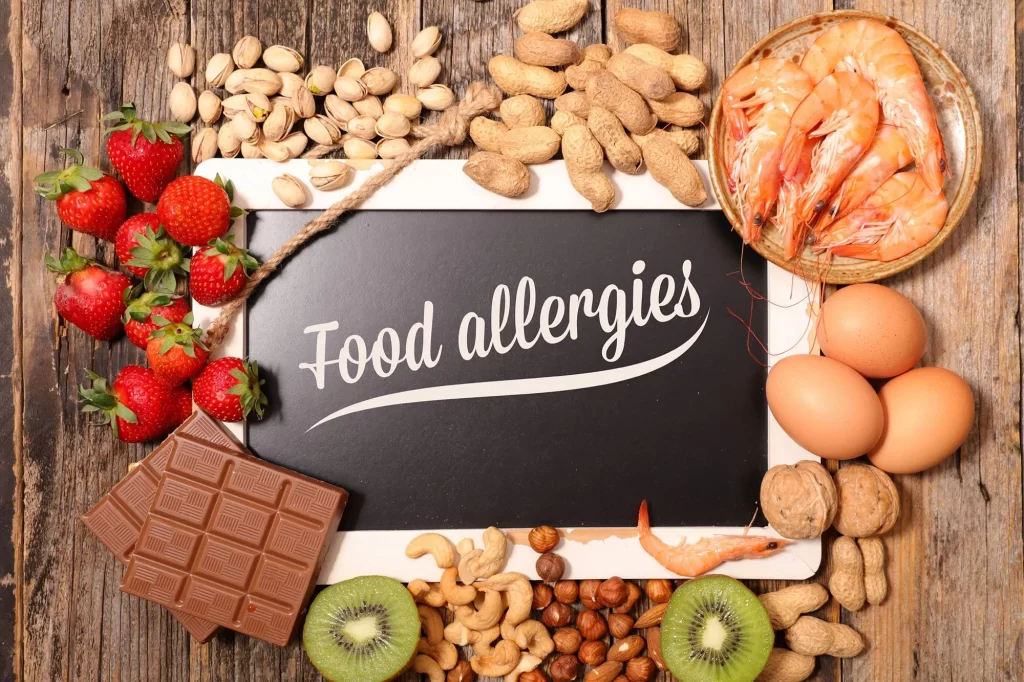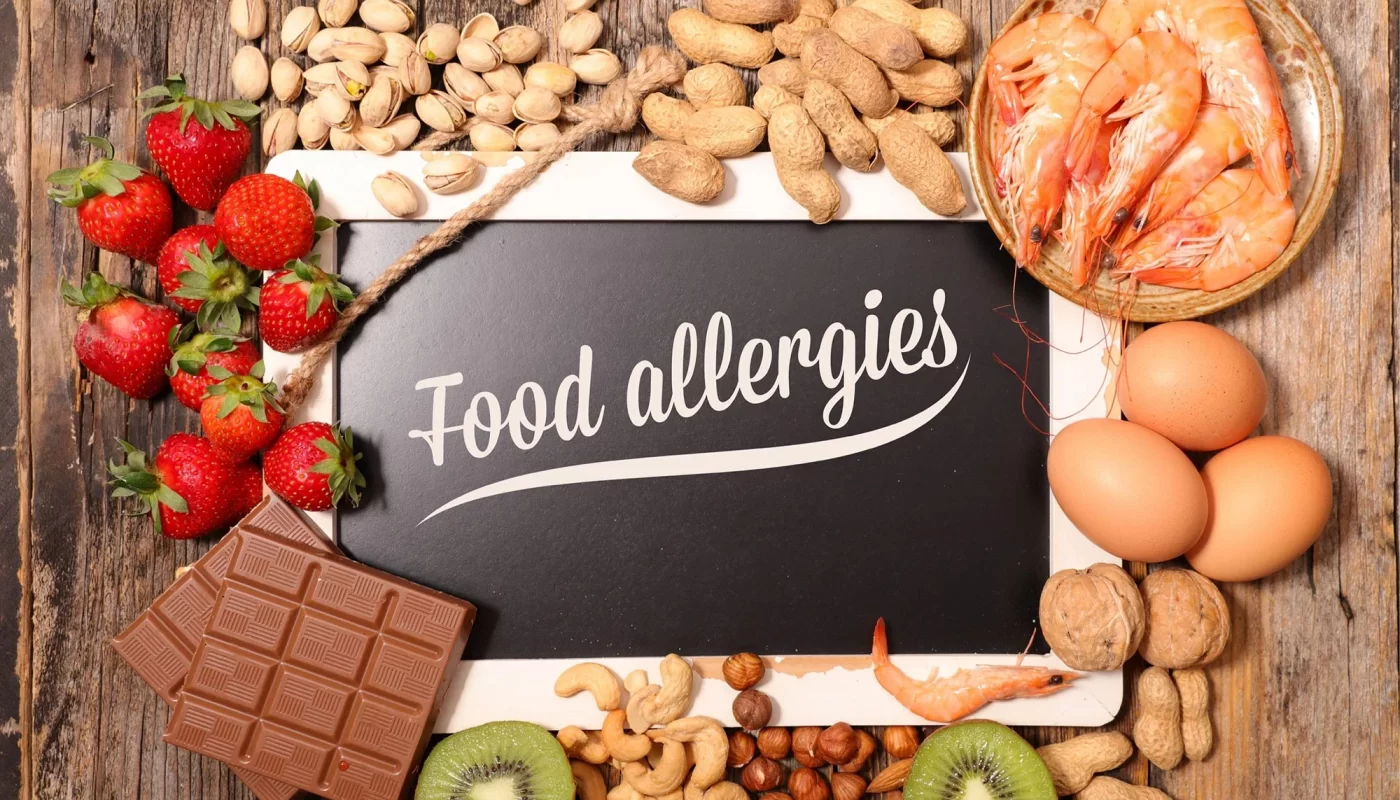Introduction
Food is often associated with joy, community, and nourishment. However, it can also be a source of fear, discomfort, and even danger for millions of people worldwide. Food allergies affect individuals of all ages, backgrounds, and walks of life, presenting unique challenges that extend far beyond simply avoiding certain foods. Let us have a look into the complex world of food allergies, exploring their causes, symptoms, management strategies, and the importance of empowerment in navigating life with a food allergy.
Understanding Food Allergies:
A food allergy is an immune system condition triggered by consuming certain foods. Unlike food intolerances, which typically involve digestive issues and don’t involve the immune system, food allergies involve an immune system reaction that can range from mild discomfort to life-threatening anaphylaxis.
Symptoms of Food Allergies:
The common and primary symptoms of a food allergy may include:
- Skin reactions: hives, eczema, or itching.
- Respiratory problems: wheezing, coughing, or nasal congestion.
- Gastrointestinal symptoms: nausea, vomiting, abdominal pain, or diarrhea.
- Cardiovascular reactions: rapid or weak pulse, lightheadedness, or loss of consciousness.
- Anaphylaxis: a severe, life-threatening reaction characterized by difficulty breathing and loss of consciousness.
Managing Food Allergies:

Managing food allergies involves several key strategies to minimize the risk of accidental exposure and mitigate the severity of reactions:
- Understanding which foods trigger an allergic reaction is essential. Individuals with food allergies and their caregivers should learn to read ingredient labels, recognize hidden allergens, and understand how to identify symptoms of an allergic reaction.
- The most effective way to prevent an allergic reaction is to avoid consuming foods that trigger it. This may require careful meal planning, communication with restaurant staff, and vigilance in social settings where allergens may be present.
- For individuals at risk of anaphylaxis, carrying an epinephrine auto-injector (such as an EpiPen) at all times is crucial. Prompt administration of epinephrine can reverse the symptoms of a severe allergic reaction and save lives.
- Clear communication with friends, family members, teachers, coworkers, and healthcare providers is essential for ensuring a safe environment for individuals with food allergies.
Empowering Individuals with Food Allergies:
Living with a food allergy can be hard and challenging, but it’s essential for individuals to feel empowered rather than overwhelmed by their condition. Empowerment involves:
- Individuals with food allergies should feel confident advocating for their needs and asserting themselves in various situations, whether it’s communicating dietary restrictions to a waiter or educating a new acquaintance about food allergies.
- Connecting and sharing with others who share similar experiences can provide valuable support, encouragement, and resources. Support groups and local organizations dedicated to food allergies can be excellent sources of community support.
- Increasing public awareness and understanding of food allergies can help foster a more inclusive and accommodating society. This includes educating others about the realities of living with food allergies, dispelling myths and misconceptions, and advocating for policies that promote food allergy safety in schools, workplaces, and public spaces.
Conclusion
In conclusion, food allergies are a significant health concern that requires awareness, education, and proactive management. By understanding the triggers, symptoms, and management strategies associated with food allergies, individuals can take control of their health, reduce the risk of allergic reactions, and live full and fulfilling lives. Through empowerment, advocacy, and community support, we all can work together to create a safer and more inclusive world for everyone.



